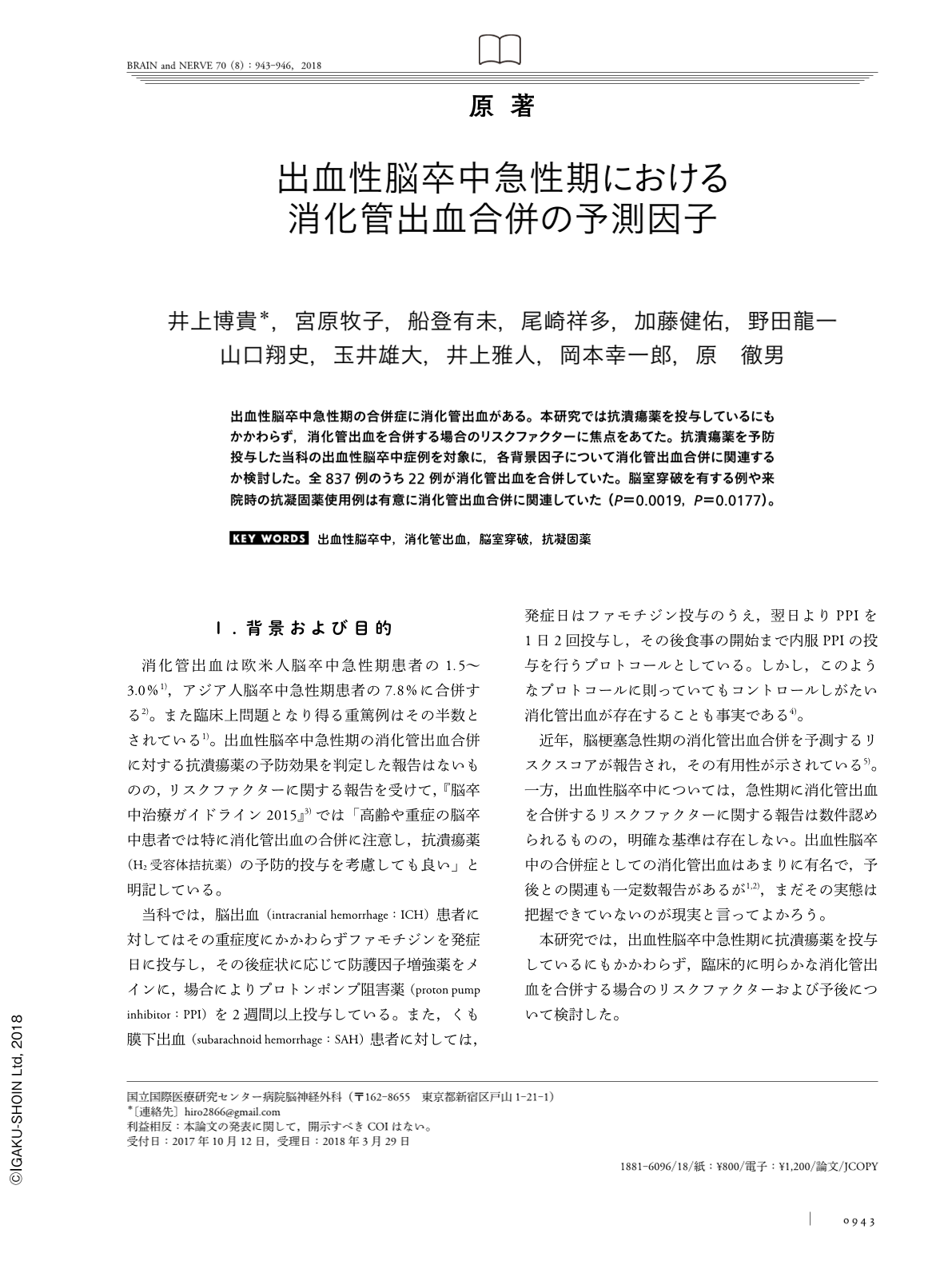Japanese
English
- 有料閲覧
- Abstract 文献概要
- 1ページ目 Look Inside
- 参考文献 Reference
出血性脳卒中急性期の合併症に消化管出血がある。本研究では抗潰瘍薬を投与しているにもかかわらず,消化管出血を合併する場合のリスクファクターに焦点をあてた。抗潰瘍薬を予防投与した当科の出血性脳卒中症例を対象に,各背景因子について消化管出血合併に関連するか検討した。全837例のうち22例が消化管出血を合併していた。脳室穿破を有する例や来院時の抗凝固薬使用例は有意に消化管出血合併に関連していた(P=0.0019,P=0.0177)。
Abstract
Background and Purpose: Gastrointestinal bleeding is an important complication in the acute phase of hemorrhagic stroke. In this study, we aimed to identify the risk factors for gastrointestinal bleeding in patients with hemorrhagic stroke despite the administration of antiulcer drugs. Methods: We conducted a retrospective cohort study of our hemorrhagic stroke cases. We analyzed the background factors associated with gastrointestinal bleeding in the study population and their outcomes. Results: The study included 837 patients: 598 with intracerebral hemorrhages and 239 with subarachnoid hemorrhages. Among them, 22 patients developed gastrointestinal bleeding. Intraventricular hemorrhage (P=0.0019) and ongoing oral anticoagulant use (P=0.0177) were significantly associated with gastrointestinal bleeding. Gastrointestinal bleeding was significantly associated with severe disability at discharge (P=0.0333) and number of days of hospitalization (P=0.0190). Conclusions: The risk factors of poorly controlled gastrointestinal bleeding during the acute phase of hemorrhagic strokes were intraventricular hemorrhage and use of anticoagulant drugs. Patients with a high risk for gastrointestinal bleeding need to be identified and to be given effective prophylactic therapy.
(Received October 12, 2017; Accepted March 29, 2018; Published August 1, 2018)

Copyright © 2018, Igaku-Shoin Ltd. All rights reserved.


